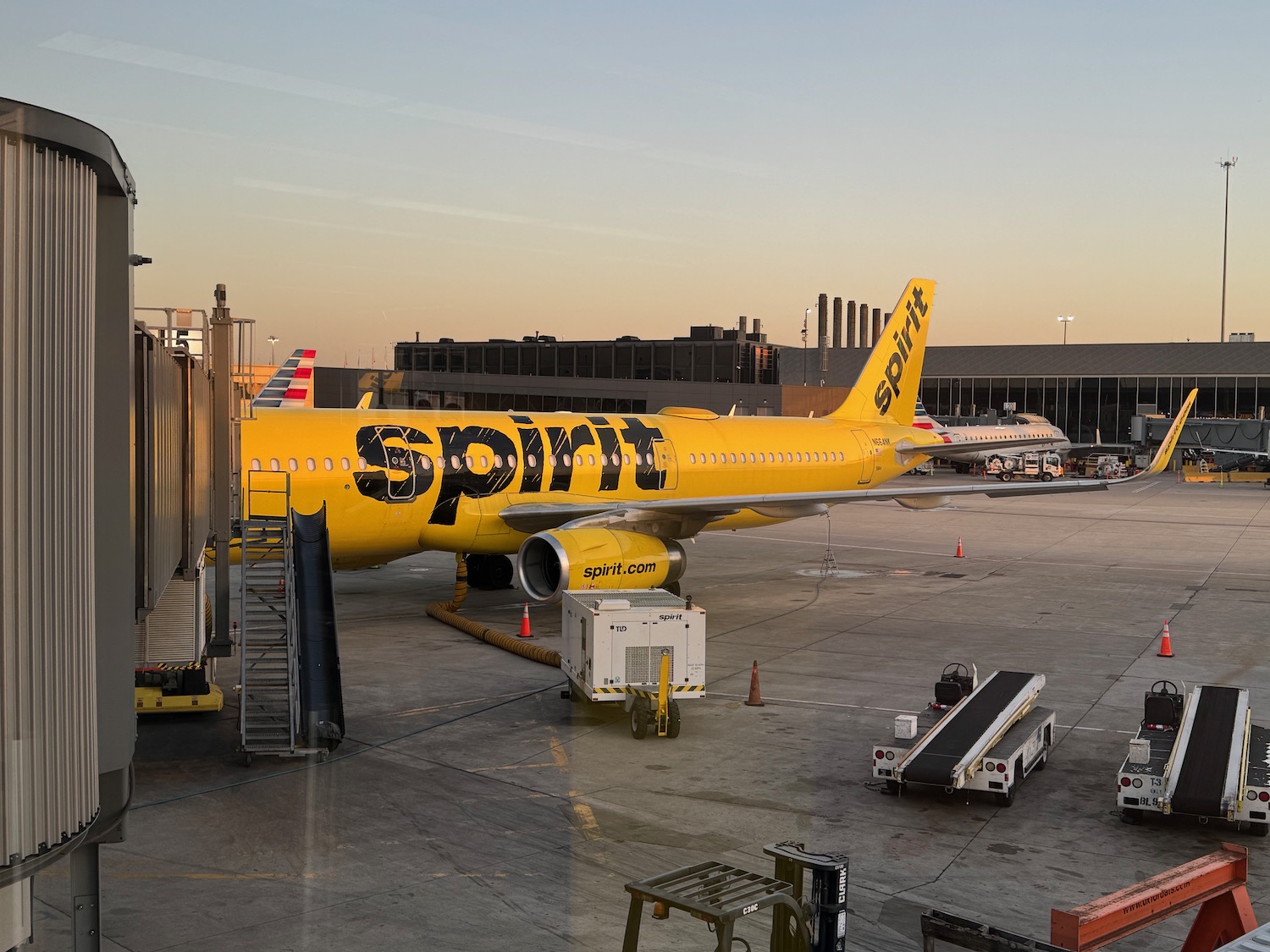Spirit Airlines has gone from highly coveted to troubled to potentially doomed carrier in the span of just four years. The latest filing could be the end.

Spirit Airlines Files Chapter 11 Bankruptcy Just Five Months After Exiting Its Last Filing
Spirit Airlines just filed for Chapter 11 for the second time in under a year, lodging its petition on August 29, 2025, in the Southern District of New York.
In Q2 2025, they posted a staggering $246 million net loss, with operating expenses clocking in at $1.2 billion, a hefty 118 percent of their revenue. They’ve already tapped out their $275 million credit line.
Despite the grim numbers, Spirit insists flights will continue, employees and contractors will keep getting paid, customers can still use their loyalty points and tickets, and service will go on during this restructuring push. They’re aiming to shrink their fleet, retreat from less viable markets, and pivot harder into “premium” travel to save hundreds of millions annually – a leopard changing its spots.
Frontier’s Whispered Opportunities (Again?)
Frontier’s been quietly hovering during all of this. Analysts suggest Frontier, along with Southwest and United, may scoop up some of Spirit’s aircraft or assets as the situation unfolds.
Back in January 2025, Frontier offered a $2.1 billion buyout in cash and stock, which Spirit declined (valuing independence over a fresh partner). Now, with bankruptcy on the table again, rumor mills are whispering that Frontier could circle back. There’s no confirmed deal yet, but it’s absolutely on everyone’s radar.
DOJ Mood: Trump vs Biden, Will Things Be Different?
Spirit’s past merger zigs have been blocked, and the JetBlue acquisition attempt is the prime example. The Biden DOJ swooped in to stop it, citing antitrust and consumer harm concerns. Now we’re in Trump DOJ territory.
Trump-appointed antitrust leaders in the past have been more permissive of mergers, especially in shaky industries. Could that make Spirit-Frontier or asset purchase deals easier this time around? Maybe, but nothing is guaranteed. Courts, consumer advocates, and rival airlines still exert plenty of pressure. So even if the DOJ signals green lights, there will still be a wrestling match ahead and fewer interested parties.
What If No Deal Gets Done?
Let’s say all the merger and asset-play talk fizzles out, what then?
Spirit could be forced to ship more aircraft back to lessors, cut routes to the bone, furlough or lay off staff, all in a grab for liquidity. In the worst-case scenario, if restructuring fails and cash runs dry, we might be looking at liquidation or outright shutdown. Earlier this month Spirit admitted it might not survive another year if things don’t improve.
Conclusion
Just five months after its last round of chapter 11 bankruptcy had closed, Spirit again filed for Chapter 11 protection on August 29, 2025. Frontier remains a potential buyer (or opportunistic suitor) but nothing’s a done deal and there are a lot of variables on the table. The Trump DOJ could be less rigid than the Biden regime was, but antitrust battles are never a breeze, that said, Alaska’s acquisition of Hawaiian paved a legal case for an easier path. If no deal lands, expect more cuts, fleet downsizing, and at worst, a possible liquidation. Fingers crossed Spirit can right the ship before things get really rough. But honestly, it’s looking more like a saga than a quick fix.
What do you think?



I’m getting really tired of hearing about merger. The issue isn’t competition right now. The issue is excess capacity and a fundamentally broken ULCC and low cost airline model. JetBlue is probably sending Biden and Garland a gift basket daily thanking them for blocking the merger. If that hadn’t of happened, JetBlue would be in a worse mess because they would’ve had more planes and staff than they’d known what to do with in this current environment. Domestic is brutal right now. United, Delta, and American are doing okay because of international, international domestic connections, and cargo. There is too much capacity in the domestic market and all airlines have to downsize and adapt or one or two are going to go out of business. That’s just the reality of economics. You can’t prop up a dead horse unless it was a government system – public transportation operates at a loss but is backed by government taxes because it’s considered a public good and necessity. We’ve deregulated airlines and these companies are private companies. Yes, we massively subsidize aviation in this country because it’s a public necessity but these airlines are still private entities. Unless the government swoops in and buys up Spirit, it is a fundamentally flawed airline model now that hemorrhages money.
Yes , we “massively subsidize aviation” , but it is Not a “Public Necessity” .
It is Not a “Public Necessity” for the taxpayers to fund more and bigger overworked air traffic control , to enable the airlines to continually expand and fly more routes , with more aircraft .
The “Public Necessity” excuse is used to enable the executives to pay themselves more and more , and to chisel the flight attendants out of a living wage .
Companies who declare bankruptcy Never Seem to Disclose the large amounts they paid their executives , who steered them into insolvency .
How about this…
How much pay protection is paid to pilots each year NOT to fly?